All Chicago is proud to support and provide research and analysis to help our partners apply proven strategies to prevent and end homelessness in Chicago even more effectively.
Below are examples of some of the research and one-pagers to support the Chicago community in these efforts.
Reports

A National Scan: Data Sharing in the Housing and Health Sectors
A national scan led by All Chicago was performed to engage with other HMIS leads, CoC leads, homelessness analytics leaders, sector partners, and related software vendors to identify solutions that could be leveraged to achieve our vision in merging data from various resources through a city‐wide Community Information Exchange (CIE).
Read the Report
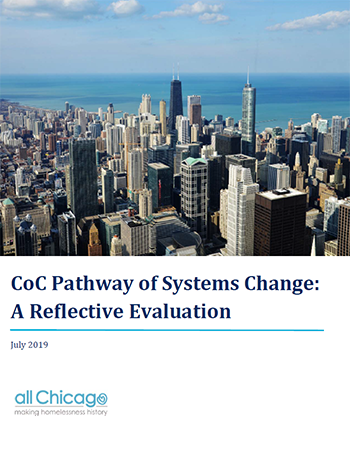 CoC Pathway of Systems Change: A Reflective Evaluation
CoC Pathway of Systems Change: A Reflective Evaluation
This reflective evaluation summarizes he perspectives of leaders in the City of Chicago’s homelessness prevention and care system. The report outlines how the system has changed over time, details successes and challenges, and discusses current system priorities and needs.
Read the Report
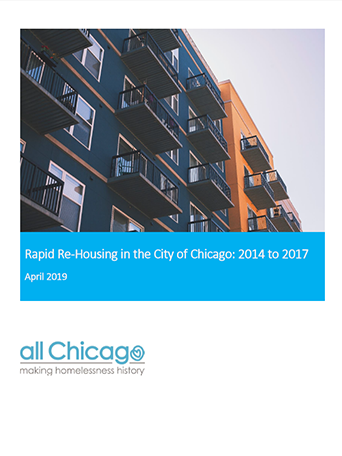 Rapid Re-Housing in the City of Chicago: 2014 – 2017
Rapid Re-Housing in the City of Chicago: 2014 – 2017
Rapid Re-housing (RRH) has become one of the major intervention models used nationwide to respond to homelessness. Using HMIS data, the report analyzes all Chicago area RRH projects between 2014-2017 to better understand the landscape in Chicago, gauge performance at the system and project levels, and recommend improvements based on this analysis.
Read the Report
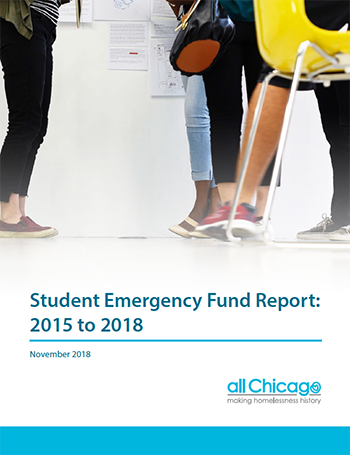
Student Emergency Fund Report: 2015 – 2018
The Student Emergency Fund provides college students with emergency financial assistance to help them stay in school when faced with a short-term emergency. This report reviews the program based on student applications, follow-up forms, and interviews with All Chicago program administrators, fund managers at partner organizations, and student recipients of financial assistance.
Read the Report
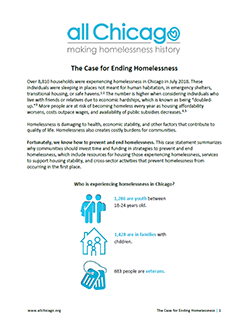 The Case for Ending Homelessness
The Case for Ending Homelessness
This case statement provides succinct arguments for communities to invest resources in proven strategies that end homelessness. These messages can be used to convince policy makers, funders, and other community members to support solutions that ensure our neighbors have a place to call home.
Read the Report
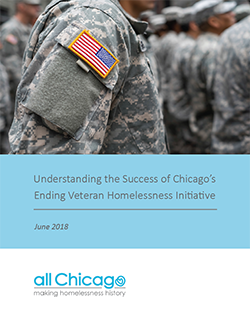 Understanding the Success of Chicago’s Ending Veteran Homelessness Initiative
Understanding the Success of Chicago’s Ending Veteran Homelessness Initiative
Since 2015, the number of veterans experiencing homelessness in Chicago has decreased by 28 percent. Learn how the homeless services community worked together to achieve this milestone through this report based on 22 stakeholder interviews.
Read the Report
Want to Learn More?
- If you are interested in conducting research in partnership with All Chicago, please contact Beth Horwitz.
- To get more information about our research, please contact us at CoCPrograms@allchicago.org, and include report title in the email subject line.
- To submit a request for HMIS data, please complete this questionnaire. If you have any questions about the form, please contact helpdesk@allchicago.org.


